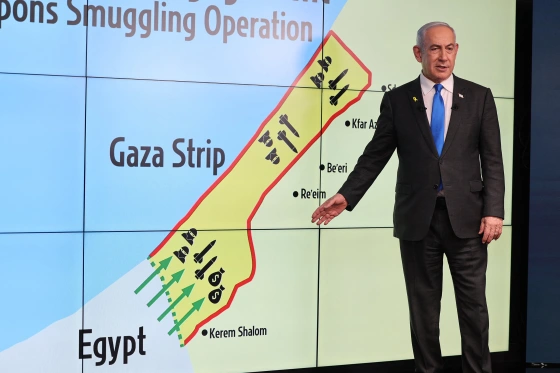
Israeli Prime Minister Benjamin Netanyahu has strongly rejected recent U.S. optimism regarding a potential cease-fire agreement with Hamas, stating unequivocally that a deal is “not close”. Netanyahu’s remarks came in response to a senior Biden administration official’s claim that negotiations were “ninety percent” complete. The Israeli leader criticized this assessment as “exactly inaccurate” and described the prospect of a truce as a “false narrative.”
Key Issues in the Cease-Fire Negotiations
Netanyahu’s rejection of the U.S. optimism highlights the significant challenges facing the cease-fire negotiations. The Israeli Prime Minister has indicated that his “red lines” have become even stricter following the recent killing of six hostages by Hamas. This tragic development has complicated the negotiation landscape, introducing new tensions and demands.
A senior US official who gave details of the talks on Wednesday said two major issues still remain unresolved. They are the exchange of Palestinian prisoners for hostages and the future of Israel’s military presence in the Gaza Strip, particularly in the Philadelphi Corridor. The corridor is a strategic area along Gaza’s border with Egypt, crucial for preventing smuggling and other militant activities.
Netanyahu ’s public statements
Netanyahu’s public statements, including his insistence on maintaining a military presence in the Philadelphi corridor, have further complicated the negotiations. The US official said that these public comments, including Netanyahu’s firm position on keeping troops in the corridor, made it difficult to reach a consensus. The Israeli leader’s approach has drawn widespread criticism and increased domestic pressure. Many in Israel have demanded a tougher response to Hamas’s actions.
The Biden administration, alongside Qatar and Egypt, has been working to broker a cease-fire to end Israel’s nearly year-long offensive in Gaza. Attack began in response to Hamas’ attack on October 7. The offensive has led to a severe humanitarian crisis, with over 40,000 fatalities in Gaza. Approximately 100 hostages still believed to be held by Hamas, many of whom are feared dead.
Current Status of the Negotiations
The cease-fire talks are at a critical juncture. The recent hostage killings have not only increased the urgency of the negotiations but have also highlighted the difficulties in reaching an agreement. The proposed truce includes a phased withdrawal of Israeli troops from densely populated areas in Gaza, a plan that has led to disagreements over the status of the Philadelphi corridor.
While the U.S. official briefed reporters on the current state of negotiations, emphasizing that a preliminary deal had been reached on several fronts, they acknowledged that significant hurdles remain. The continued hostage crisis and Netanyahu’s firm stance on key issues have made it challenging to finalize a comprehensive agreement.
Reactions to Netanyahu ‘s actions and consequences
The Israeli government’s position has drawn criticism from both domestic and international observers. Israeli Foreign Minister Israel Katz and National Security Minister Itamar Ben-Gvir have publicly expressed their opposition to the negotiations, suggesting that the ongoing violence and recent hostage killings undermine the chances of reaching a successful deal.
In contrast, Hamas has accused Netanyahu of deliberately stalling the negotiations by insisting on conditions that they view as unacceptable. The militant group argues that Netanyahu’s demands are intended to prolong the conflict and prevent any meaningful resolution.
Looking Ahead
As the negotiations continue, the path to a cease-fire remains fraught with obstacles. The recent developments have underscored the complexities of the conflict and the difficulties in achieving a lasting truce. Both sides remain entrenched in their positions, and the international community watches closely as efforts to bring an end to the violence persist. The outcome of these negotiations will be critical in determining the future stability of the region and the prospects for peace.